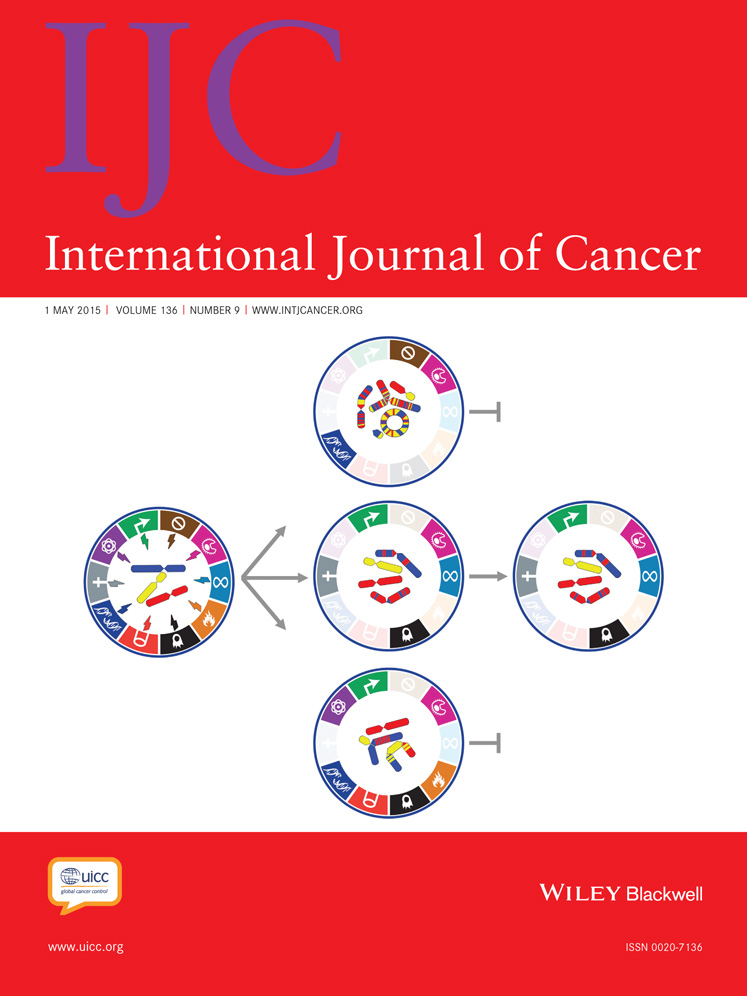Active cigarette smoking and risk of breast cancer
Abstract
Although epidemiological evidence on the role of active cigarette smoking in breast cancer risk has been inconsistent, recent literature supports a modest association between smoking and breast cancer. This association is particularly observed in women who smoke for a long duration, or who smoke for a long time prior to their first pregnancy. Here, we provide updated results on cigarette smoking and breast cancer risk in the Canadian National Breast Screening Study (NBSS). The NBSS is a large cohort of 89,835 women, aged 40–59, who were followed for a mean of 22.1 years, resulting in the ascertainment of 6,549 incident cases of breast cancer. Cox proportional hazard models were used to estimate hazard ratios (HR) and 95% confidence intervals (CI) for the association of cigarette smoking variables with breast cancer risk. We found breast cancer to be associated with duration (40 years vs. 0: HR = 1.57; 95%CI = 1.29–1.92), intensity (40 cigarettes per day vs. 0: HR = 1.21; 95%CI = 1.04–1.40), cumulative exposure (40 pack-years vs. 0: HR = 1.19; 95%CI = 1.06–1.13) and latency (40 years since initiation vs. 0: HR = 1.19; 95%CI = 1.10–1.53) of cigarette smoking. Number of years smoked prior to first full-term pregnancy was associated with higher risk of breast cancer than comparative years smoked post-pregnancy (among parous women, 5 years pre pregnancy vs. 0: HR = 1.18; 95%CI = 1.10–1.26). These results strongly support a role for cigarette smoking in breast cancer etiology and emphasize the importance of timing of this exposure.
Abstract
What's New?
Smoking, everyone knows, is bad for your lungs. But could it also boost a woman's risk of breast cancer? No consistent epidemiological picture yet exists for how smoking affects breast cancer. These authors made use of a large cohort, the Canadian National Breast Screening Survey, to correlate smoking habits with breast cancer risk. They found a strong link between smoking and breast cancer. Timing of cigarette exposure was important; beginning a smoking habit at a younger age, and continuing to smoke for more years, had a larger impact on breast cancer risk, as did number of cigarettes smoked per day.




